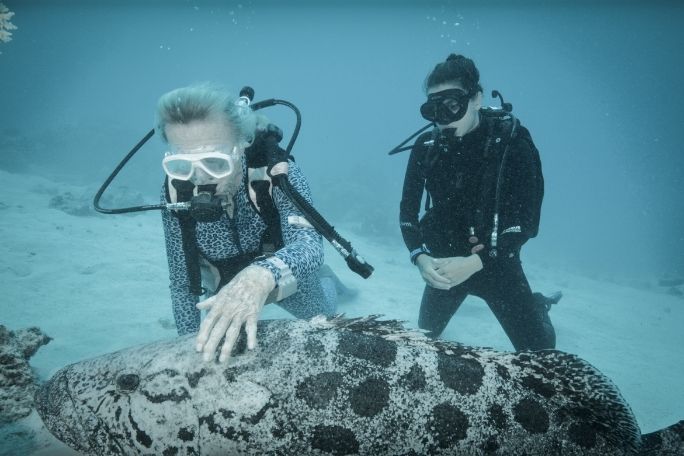Lesson summary
This lesson incorporates clips from Blue The Film as learning inspiration. Students explore some of the ways humans have impacted on our ocean. They begin by sharing what they already know about the impacts of humans on marine ecosystems and species. Students then explore in more depth how humans impact oceans through waste and pollution, coastal development, overfishing and ocean change. Finally, students will work in groups to create their own guided discussion around additional clips from Blue, taking it in turns to then share their clips and guided discussions with the class.
Learning intentions:
Students will...
- understand that the health of our oceans is under threat from human behaviour
- recognise a range of ways that humans have impacted the ocean
- understand how to create a guided discussion around a clip in order to lead their audience to a particular understanding or issue raised in the clip.
Success criteria:
Students can...
- participate in a guided discussion around a clip
- create and conduct a guided discussion around a clip
- identify how people impact the ocean
- understand that the ocean is under threat from human behaviour.
Lesson guides and printables
Lesson details
Curriculum mapping
Australian curriculum content descriptions:
Year 7 Science:
- Solutions to contemporary issues that are found using science and technology, may impact on other areas of society and may involve ethical considerations (ACSHE120)
Syllabus outcomes: SC4-11PW
General capabilities: Critical and creative thinking
Cross-curriculum priority: Sustainability OI.2, OI.9
Relevant parts of Year 7 Science achievement standards: Students predict the effect of human and environmental changes on interactions between organisms.
Unit of work: Blue The Film – Science – Year 7 & 8
Time required: 120 mins +
Level of teacher scaffolding: Medium – lead students in guided discussion.
Resources required
- Student Worksheet – one copy per student
- Device capable of presenting a website to the class
- String, masking tape or chalk
- Guided Discussion Rubric
Skills
This lesson is designed to build students’ competencies in the following skills:
- Collaboration
- Communication
- Creativity
- Critical thinking
- Digital literacy
Additional info
Blue is a feature documentary film charting the drastic decline in the health of our oceans. With more than half of all marine life lost and the expansion of the industrialization of the seas, the film sets out the challenges we are facing and the opportunities for positive change. Blue changes the way we think about our liquid world and inspires the audience to action. Find out how to screen or download the film here. Along with the film is an ambitious global campaign to create advocacy and behaviour change through the #oceanguardian movement. To become an ocean guardian, see the website.


Welcome back!
Don't have an account yet?
Log in with:
By signing up to Cool.org you consent and agree to Cool's privacy policy to
store, manage and process your personal information. To read more, please see
our privacy policy here(Opens in new tab).
Create your free Cool.org account.
Many of our resources are free, with an option to upgrade to Cool+ for premium content.
Already have an account?
Sign up with:
By signing up to Cool.org you consent and agree to Cool's privacy policy to
store, manage and process your personal information. To read more, please see
our privacy policy here(Opens in new tab).